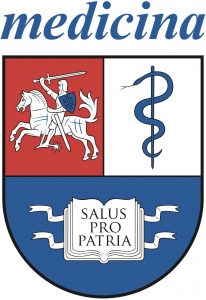Publications

Effect of Intensive Face Yoga on Facial Muscles Tonus, Stiffness, and Elasticity in Middle-Aged Women: A Pre-Experimental Clinical Trial
Authors: Hazel Celik Guzel 1, Sule Kecelioglu 2, Ahmet Kurtoglu 3, Safaa M. Elkholi 4
Affiliations:
- Department of Therapy and Rehabilitation, Health Services Vocational School, Bandirma Onyedi Eylül University, Balikesir 10200, Turkiye
- Department of Physiotherapy and Rehabilitation, Faculty of Health Sciences, Bandirma Onyedi Eylul University, Balikesir 10200, Turkiye
- Department of Coaching Education, Faculty of Sport Science, Bandırma Onyedi Eylul University, Balikesir 10200, Turkiye
- Department of Rehabilitation Sciences, College of Health and Rehabilitation Sciences, Princess Nourah bint Abdulrahman University, P.O. Box 84428, Riyadh 11671, Saudi Arabia
Journal: Medicina - May 2025, Volume 61, Issue 5, Article no. 840 (DOI: 10.3390/medicina61050840)
-
Field & Applications:
- Medical
- Clinical trial
- Treatment evaluation
- Orofacial muscles
- Gerontology / Ageing
- Complementary and Alternative Medicine
- Musculoskeletal health
Background and Objectives: The effects of face yoga, which continues to be popular as an anti-aging technique, on facial muscles in relation to aging represent an area of interest. The aim of this study was to investigate the effect of 8 weeks of intensive face yoga on facial muscles’ tonus, stiffness, and elasticity in middle-aged women.
Materials and Methods: Twelve female participants with a mean age of 49.75 ± 3.76 were included in this pre-experimental clinical trial. Face yoga was applied to the participants for 8 weeks, 2 days a week face-to-face, and 5 days a week as a home program. At the beginning and the end of 8 weeks, the tonus, stiffness, and elasticity of the participants’ facial muscles were evaluated with the MyotonPRO® device.
Results: Following the face yoga program, the tonus and stiffness of the frontalis (p = 0.008, p = 0.002), corrugator supercilii (p = 0.008, p = 0.019), orbicularis oculi (p = 0.023, p = 0.034), and orbicularis oris (p = 0.007, p = 0.015) muscles decreased significantly, while the tonus and stiffness of the buccinator (p = 0.008, p = 0.002) and digastric (p = 0.008, p = 0.023) muscles increased. Elasticity values increased in all evaluated facial muscles (p = 0.045, p = 0.045, p = 0.034, p = 0.023, p = 0.028, p = 0.005, respectively).
Conclusions: The results reveal that face yoga has different effects depending on the physiological structure and function of the muscles and positively affects connective tissue. Future studies should reproduce the results presented here to further our understanding of the effects of face yoga.
Keywords: anti-aging, elasticity, muscle tonus, stiffness, yoga
This pre-experimental clinical trial shows that face yoga can change the biomechanical properties of specific facial muscles in middle-aged women. While relaxation and increased elasticity were observed in superficial facial muscles, tonus and elasticity increased in functional muscles. These findings suggest that face yoga may have selective effects depending on muscle physiology, provide relaxation, and create a strengthening impact on specific muscle groups. In addition, it is predicted that face yoga can support facial muscles’ function and esthetic appearance in the aging process. However, more comprehensive randomized controlled studies are needed to evaluate the generalizability of these findings.


